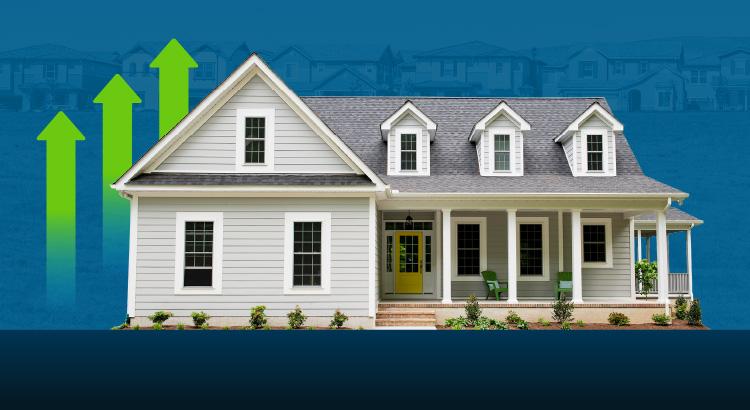Is It Enough To Offer Asking Price in Today’s Housing Market?

If you’re planning to buy a home this season, you’re probably thinking about what you’ll need to do to get your offer accepted. In previous years, it was common for buyers to try and determine how much less than the asking price they could offer to still get the home. The buyer and seller would then
Read MoreMyths About Today’s Housing Market [INFOGRAPHIC]
![Myths About Today’s Housing Market [INFOGRAPHIC],KCM Crew](https://img.chime.me/image/fs/chimeblog/20220427/16/original_4712247d-e63e-449c-8f86-5401b06e03f9.png)
Some HighlightsIf you’re planning to buy or sell a home today, it’s important to be aware of common misconceptions.Whether it’s timing your purchase as a buyer based on home prices and mortgage rates or knowing what to upgrade or repair before listing your house as a seller, it takes a professional
Read MoreWhy This Housing Market Is Not a Bubble Ready To Pop

Homeownership has become a major element in achieving the American Dream. A recent report from the National Association of Realtors (NAR) finds that over 86% of buyers agree homeownership is still the American Dream.Prior to the 1950s, less than half of the country owned their own home. However, aft
Read MoreHow To Approach Rising Mortgage Rates as a Buyer

In the last few weeks, the average 30-year fixed mortgage rate from Freddie Mac inched up to 5%. While that news may have you questioning the timing of your home search, the truth is, timing has never been more important. Even though you may be tempted to put your plans on hold in hopes that rates w
Read MoreWhy Pre-Approval Is an Important Step for Today’s Homebuyers

Being intentional and competitive are musts when buying a home this season. That’s why pre-approval is so important today. Pre-approval from a lender is the only way to know your true price range and how much money you can borrow for your loan. Peter Warden, Editor of The Mortgage Reports, explains:
Read MoreIs It Time To Buy a Smaller Home?

Life events can have a major impact on what you need from your home, and retirement is one of the biggest changes many of us face. This period of your life can mean doing more of the things you enjoy, like traveling, visiting with loved ones, or taking on new hobbies. But what does that mean for you
Read MoreWhat Is Multigenerational Housing? [INFOGRAPHIC]
![What Is Multigenerational Housing? [INFOGRAPHIC],KCM Crew](https://img.chime.me/image/fs/chimeblog/20220419/16/original_1dcf3543-d6aa-4c7c-8f8f-08233dc27f9e.png)
Some Highlights If you have additional loved ones coming to live with you but don’t have enough space, it may be time to consider a larger, multigenerational home. Some key benefits of multigenerational living include a combined homebuying budget, shared caregiving duties, enhanced relationships
Read MoreWhere Are Mortgage Rates Headed?

There’s never been a truer statement regarding forecasting mortgage rates than the one offered last year by Mark Fleming, Chief Economist at First American:“You know, the fallacy of economic forecasting is: Don’t ever try and forecast interest rates and or, more specifically, if you’re a real estate
Read MoreUsing Your Tax Refund To Achieve Your Homeownership Goals This Year

If you’re buying or selling a home this year, you’re likely saving up for a variety of expenses. For buyers, that might include things like your down payment and closing costs. And for sellers, you’re probably working on a bit of spring cleaning and maintenance to spruce up your house before you lis
Read MoreThe Future of Home Price Appreciation and What It Means for You

Many consumers are wondering what will happen with home values over the next few years. Some are concerned that the recent run-up in home prices will lead to a situation similar to the housing crash 15 years ago.However, experts say the market is totally different today. For example, Odeta Kushi, De
Read MoreRemote Work Trends Mean Flexibility for First-Time Homebuyers

Today’s low inventory can be challenging for homebuyers, especially if you’re looking to purchase your first home. But if you’re one of many people who work remotely, you may have a great opportunity to use the flexibility you have at work to achieve your homebuying goals this year.In a recent repor
Read MoreWhat You Need To Budget for When Buying a Home

When it comes to buying a home, it can feel a bit intimidating to know how much you need to save and where to find that information. But you should know, you’re not expected to have all the answers yourself. There are many trusted professionals who can help you understand your finances and what you’
Read More
Categories
Recent Posts










